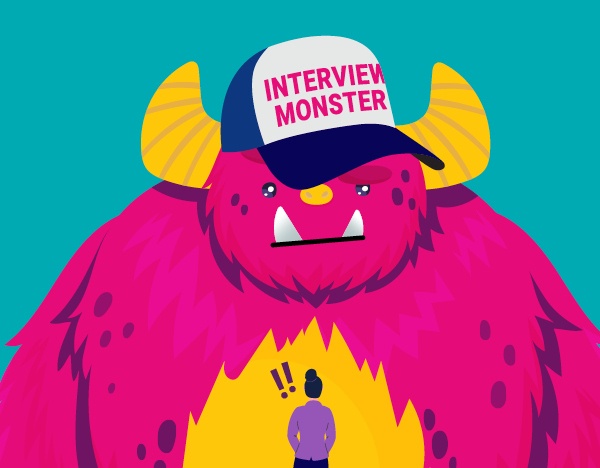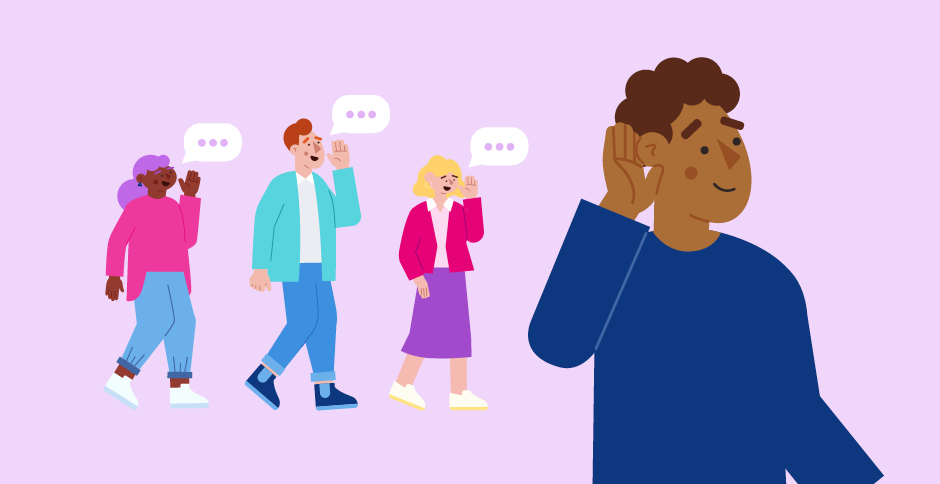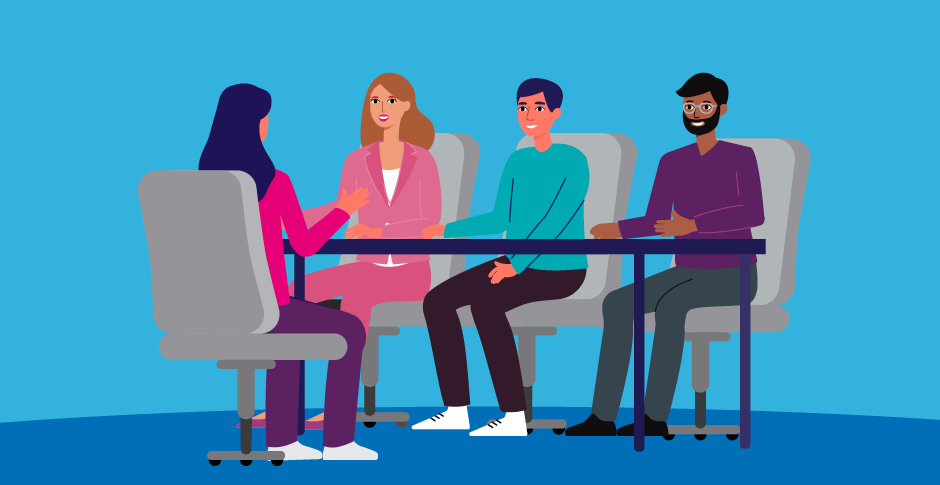Sweaty palms, a racing heart, shaky voice, negative thoughts...sound familiar? You’re not the only one - 82% of people say they feel nervous about interviews at least sometimes. These are just some of the many symptoms people experience before and during a job interview.
Interview nerves and anxiety afflicts even the most successful and naturally confident people, and sometimes it feels that there’s no fix or trick.
“Being anxious going into an interview is completely normal,” explains clinIcal psychologist Charlotte Bull.
“Job interviews can be extremely anxiety inducing. This can be for a range of reasons – being the focus of so much attention, being questioned about your performance, and the knowledge that making mistakes could be costly.”
“A bit of anxiety can actually be helpful, because it can motivate us and improve performance. The problem arises when that anxiety becomes extreme and actually impacts on how you present during an interview.”
Katie Roberts is director of Katie Roberts Career Consulting, an organisation providing interview coaching to people across Australia. Roberts offers six solutions for reducing anxiety at job interviews:
- Interview preparation is the key to reducing anxiety. Learn as much as you can about the company. Brainstorm potential interview questions, identify your past achievements and how they are relevant to the role. Practise answering questions out loud or in a mock interview with a friend or family member.
- Visualise your success at the interview. Imagine yourself walking into the interview room, shaking hands with the interviewers and answering their questions with confidence. Visualise them calling you up to offer you a position after the interview.
- Change your mindset about the interview. Remember it’s not just about them interviewing you. It’s also an opportunity for you to find out if they are the right organisation for you. Does the workplace culture align to your values? Is diversity endorsed throughout the business? Does the offered salary match what you believe your skills and experience are worth?
- Dress for success. Wearing clothes that look and feel great will help you to feel more confident at the interview. Remember, first impressions count! Read our article, What to wear to an interview, really for more tips.
- Put the interview into perspective and don’t lose sight of the big picture. An interview can build up to feeling like a make-or-break moment. There’s no doubt that missing out on a role can be tough, but if that does happen, it can help to put things in perspective. Remember, there will be other opportunities. Your working life will have all kinds of chapters. So, ask yourself, “What’s the worst that can happen?”
- Plan ahead. Nothing adds to anxiety like running late. Look up the map location of the interview and plan how you’re going to get there, how long it will take, where you will park if you’re driving, etc. Arrive at least 15 to 30 minutes early so you have time to familiarise yourself with the environment and mentally prepare yourself.
Bull also advises interviewees to tap into the physical symptoms. “Try to slow your breathing, and focus on the breath at one point in your body as it enters and exits. You might notice that focusing on the breath reduces the intensity of your thoughts.”
Finally, remember, there’s no single, perfect fix to job interview nerves. Use whatever tactics or tricks work best for you. A little anxiety can be healthy, indicating you care about the outcome, and it’s the perfect opportunity for you to show prospective employers how and why you’re right for the job.
Independent research conducted by Nature of behalf of SEEK, interviewing 4000 Kiwis annually. Published April 2023.



